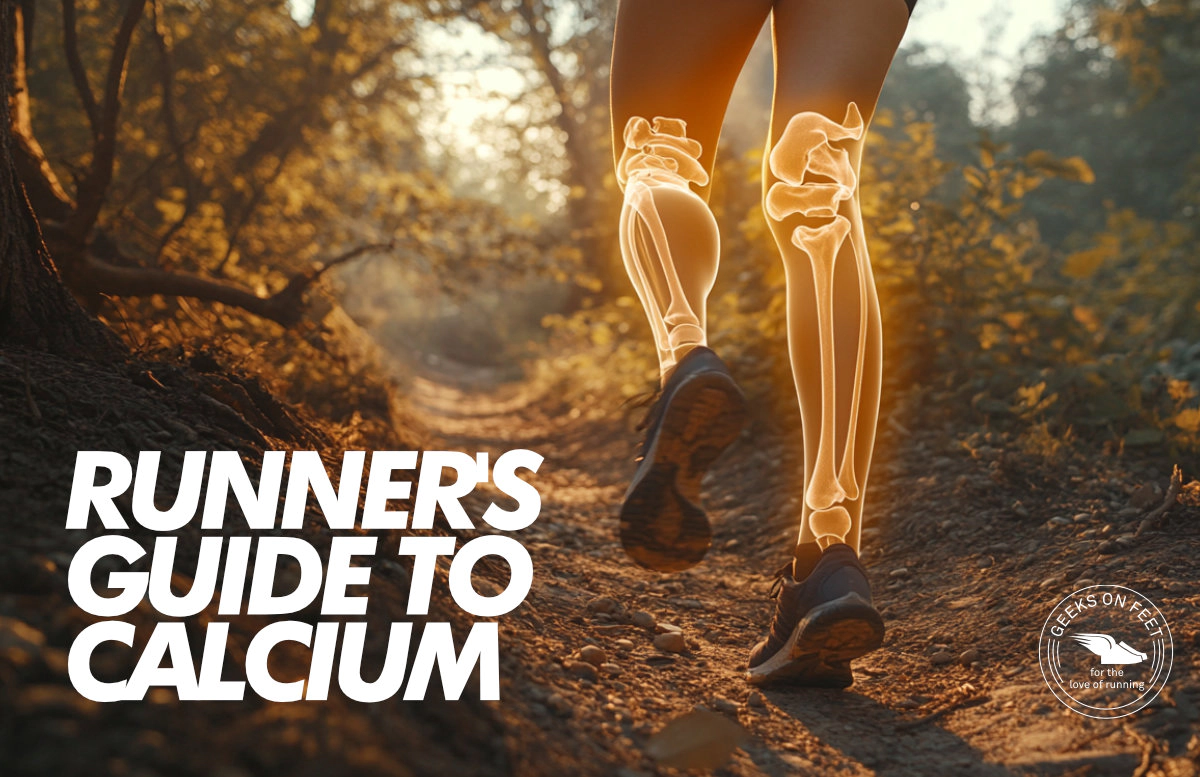
As runners, we put our bones through a repetitive, high-impact workout. Every time your foot strikes the ground, tiny micro-tears occur in our bones. Calcium is a primary component of hydroxyapatite, the mineral matrix that provides rigidity and strength to bones. During the recovery, our body repairs these and makes the bones denser and more resilient. Calcium is crucial in this process. Insufficient calcium can lead to decreased bone mineral density (BMD), increasing susceptibility to fractures.
Beyond bone health, calcium plays a critical role in muscle function. When nerve signals tell your muscles to contract, calcium floods into the muscle cells, triggering the process. When it’s time to relax, calcium is pumped back out. If you’re not getting enough calcium, this delicate balance can be disrupted. You might experience muscle cramps during or after your runs, or even feel a general sense of fatigue and weakness.
Daily Calcium Requirements
The recommended daily intake of calcium for most adults is around 1,000-1,300 mg, with this amount ideally spread throughout the day. Runners may benefit from adhering to the higher end of this spectrum to support their increased physiological demands.
It’s important to note that about only 30% of calcium absorption occurs through dairy products, so other sources like kale, tofu, and almonds should be considered.
Vitamin D is critical for calcium absorption in the intestine. Deficiency in vitamin D can impair calcium utilization. For those recovering from injury, maintaining the right balance of Vitamin D and calcium is crucial. Magnesium and Phosphorus minerals interact synergistically with calcium in bone formation and metabolic processes.
Calcium-Rich Foods
Calcium can be found in a variety of foods, including:
Pro-Tip: Soaking almonds in water overnight helps reduce the tannins and phytates in their skin, which can interfere with calcium absorption.
Vitamin K and Bone Health
Vitamin K also plays a role in supporting bone formation, so it’s important to consume foods rich in Vitamin K, such as leafy greens, alongside calcium.
Calcium Deficiency in Female Athletes
Female athletes who experience low energy availability or amenorrhea (absence of menstruation) may be at risk of calcium withdrawal from their bones. This can contribute to decreased bone density and increase the risk of fractures, so it’s essential to monitor calcium and overall nutrient intake.
Pro-Tip: A daily intake of 45 kcal per kilogram of fat-free mass (FFM), including calcium, carbohydrates, protein, and Vitamin D, is recommended for optimal bone health and recovery.
Bone Density Testing
A DEXA (Dual-Energy X-ray Absorptiometry) scan is considered the gold standard for assessing bone density. It provides a detailed measurement of bone mass and can help identify risk factors for fractures.
The Bottom Line
Calcium isn’t just about strong bones; it’s crucial for other functions including better muscle ordination. By ensuring you’re getting enough of this vital mineral, you’re not only protecting yourself from injuries but also supporting the very mechanisms that drive performance. Take a closer look at your diet, and ensure you are taking calcium-rich foods.
Compiled by Team GeeksOnFeet for the love of running